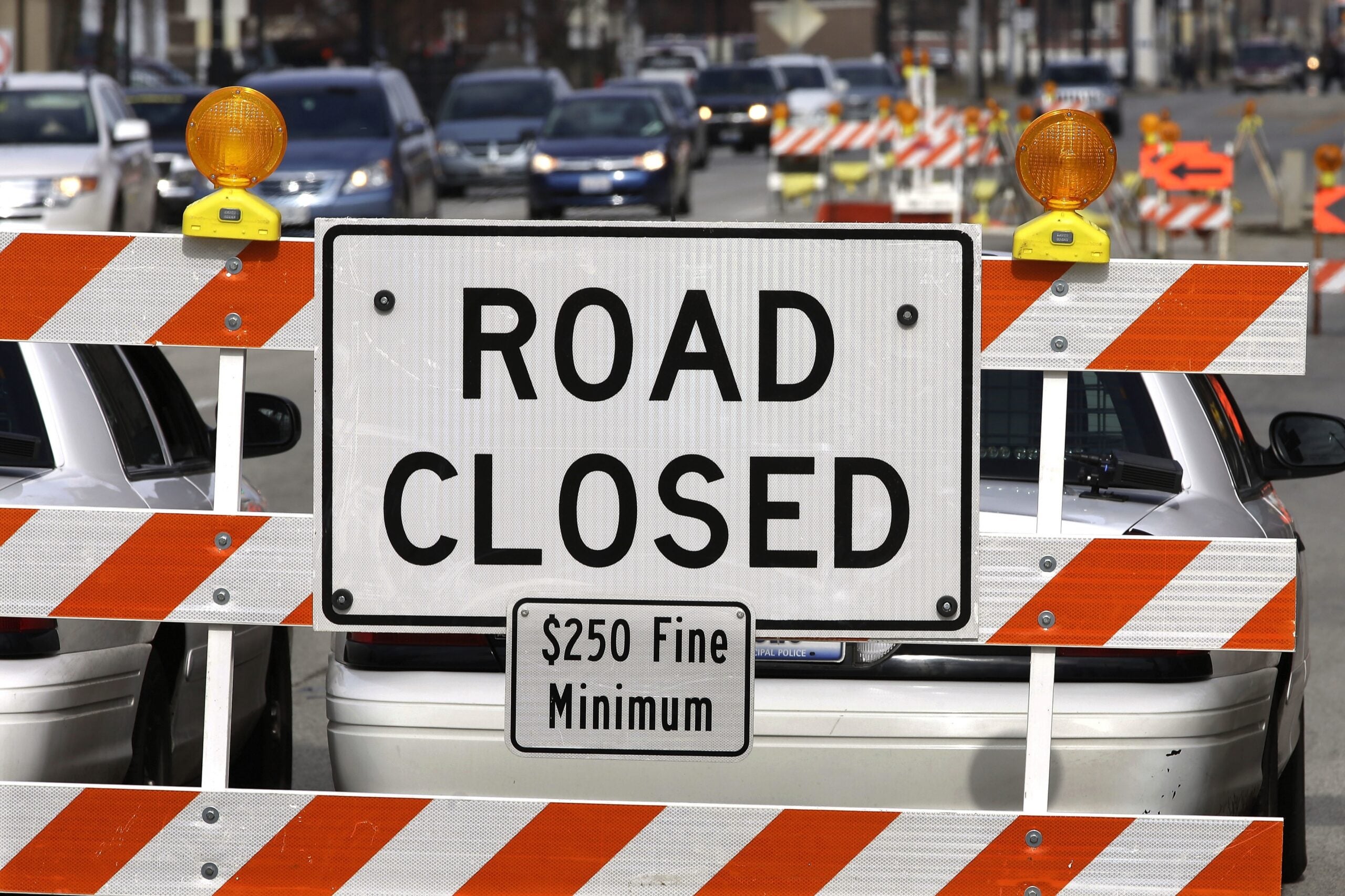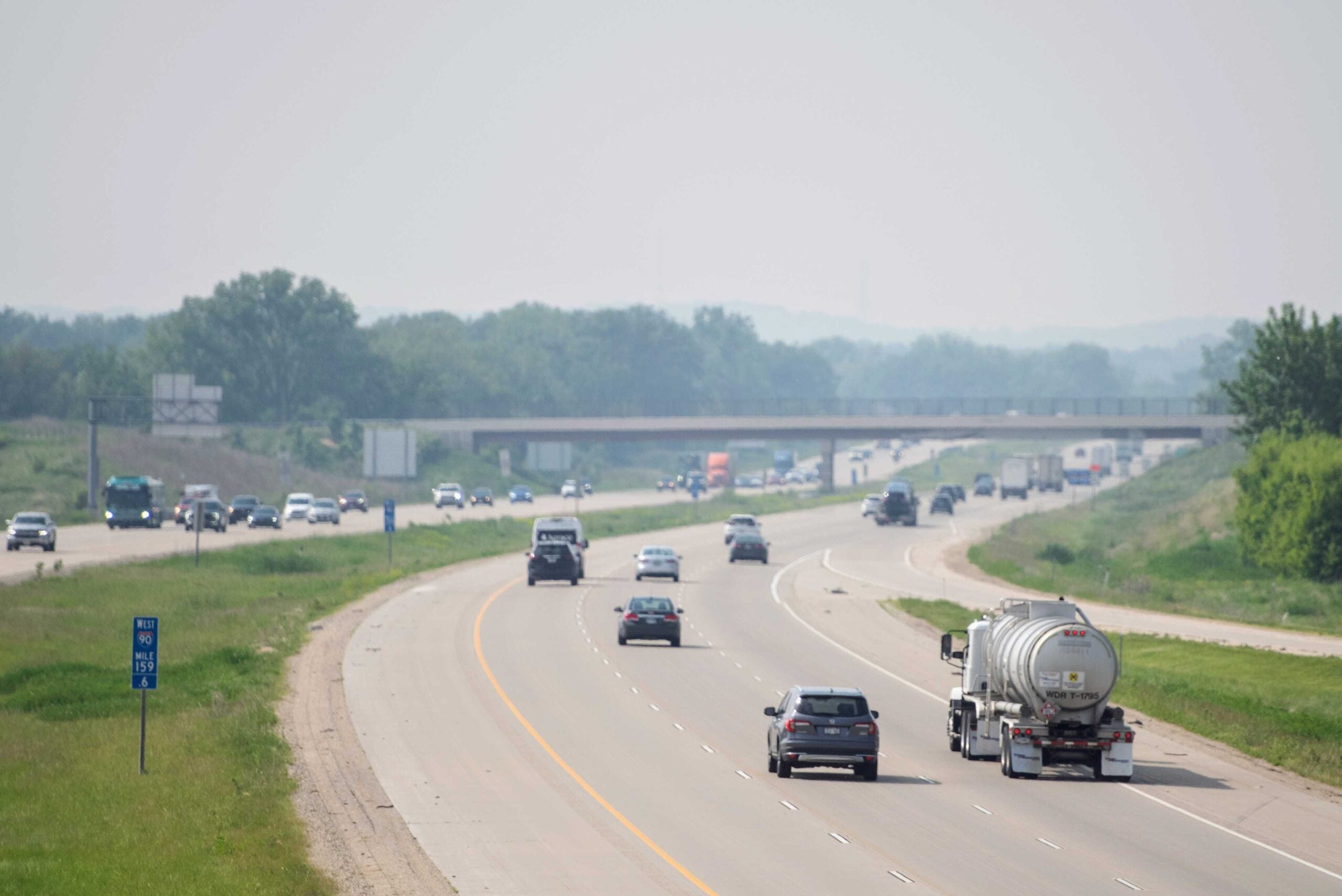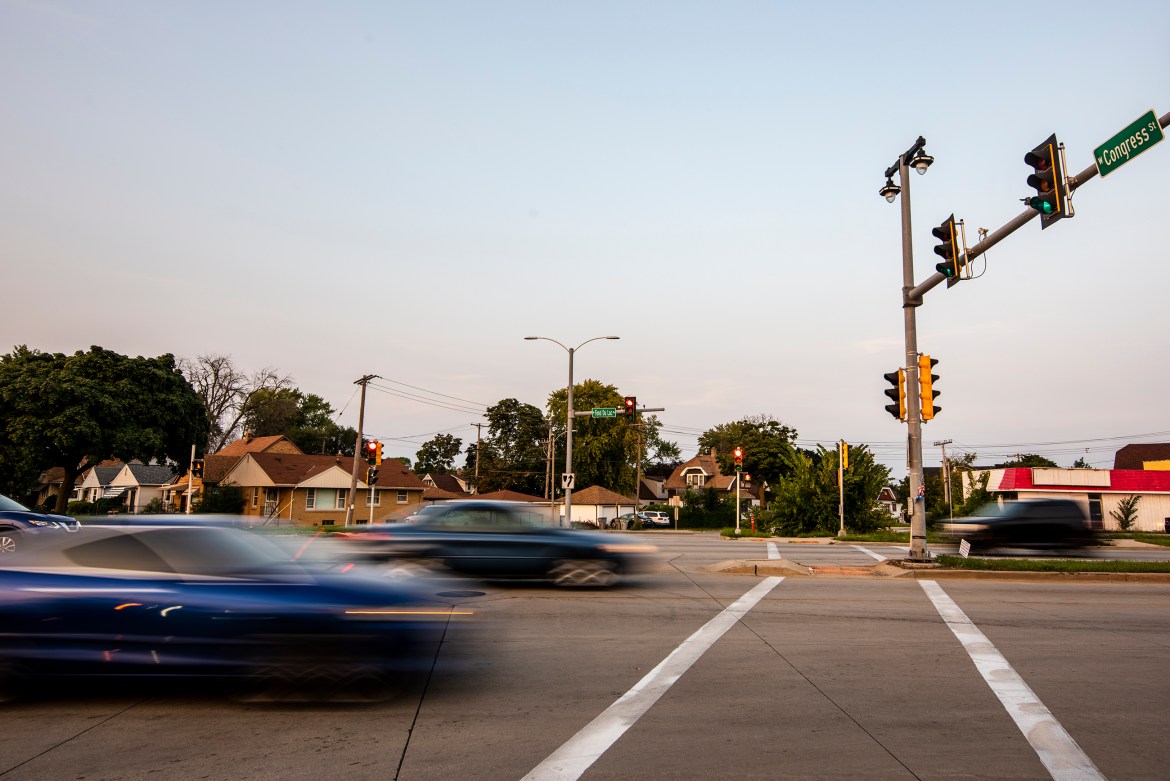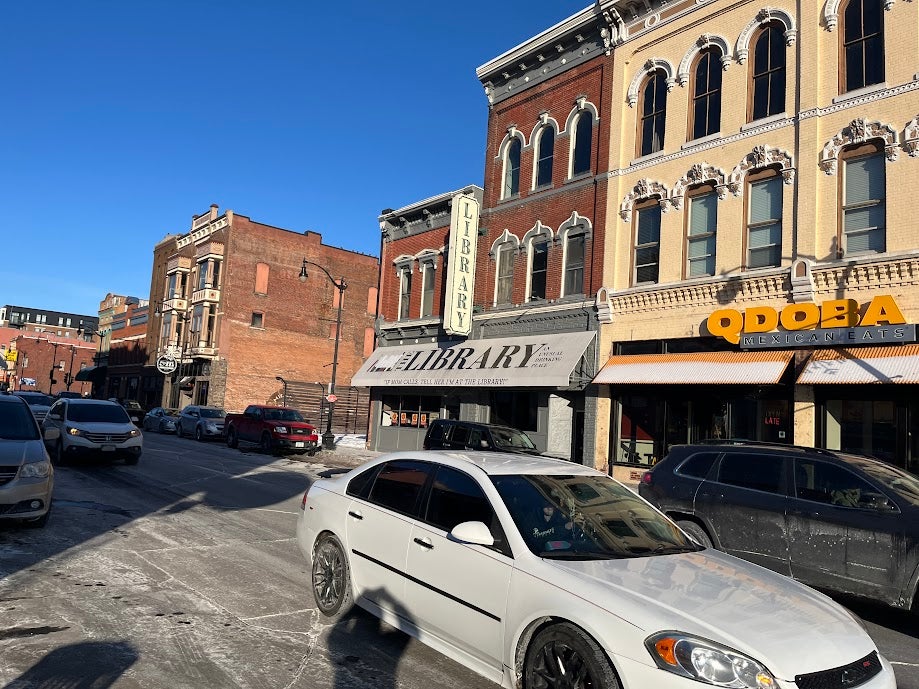The City of Eau Claire is considering a wheel tax to raise new money for road repairs about a month after state lawmakers increased shared revenue payments to local governments. Local officials say the 1970s-era formula used to distribute the aid is failing some municipalities.
The Eau Claire City Council is expected to vote on a $24 vehicle registration fee this month, which would raise around $1 million in new revenue for road repairs. The proposal has changed slightly from a failed February resolution that would have enacted a $30 wheel tax.
City Council Vice President Emily Anderson voted against the wheel tax earlier this year but is now a supporter. She said she hoped a bipartisan shared revenue deal sending more money to local governments would have been enough to cover growing road costs. Instead, the $1.2 million in new money is only expected to cover inflationary cost increases for existing services, Anderson said.
News with a little more humanity
WPR’s “Wisconsin Today” newsletter keeps you connected to the state you love without feeling overwhelmed. No paywall. No agenda. No corporate filter.
“We’re in this position where we’re forced to ask people to pay more because the state Legislature decided on a funding formula that really gives us the short end of the stick,” Anderson said. “And we’re really not getting as much money, equitably, as many other communities in the state.”
There are currently 36 municipalities and 13 counties with ongoing wheel taxes. If approved by the city council, Eau Claire residents could wind up paying $24 per year in registration fees to the city on top of $30 to the county.
The sweeping shared revenue deal increased overall aid going to counties and municipalities by at least 20 percent. But League of Wisconsin Municipalities Executive Director Jerry Deschane said for some communities, like Eau Claire, shared revenue is not a substantial part of their budget.
The current distribution formula for the state’s shared revenue program was created by the Legislature in 1976. It considers things like per capita property values and local property tax revenues.
“But then, where they (state legislators) messed up, is they locked it in place 20 years ago and it hasn’t changed since,” Deschane said. “As a result, there are certain communities — Eau Claire is a great example of this — that grew substantially over the last 20 years. Shared revenue should have grown with them, but it did not. So, even a 20 percent increase in shared revenue now does not accurately or adequately reflect all of Eau Claire’s growth.”
There are a number of cities and villages in a similar situation, Deschane said. He said local governments are just getting into budgeting season and figuring out how the additional state aid will play. But Deschane said he wouldn’t be surprised to see some municipalities seeking additional money from residents, through wheel taxes or potential referendums.
He said the shared revenue deal is a “fantastic increase” in money for local governments that will increase along with sales tax revenues.
“But it was never going to be the be all and end all answer for a number of communities,” Deschane said.
In Rock County, two cities serve as another example of stark differences under the state’s shared revenue formula. The city of Beloit, with around 36,000 residents, will get an additional $3.5 million next year in state aid. The city of Janesville, with around 65,000 residents, will get around $913,000 in new money.
Nick Foust is an assistant to Janesville’s city manager. He told Wisconsin Public Radio the new revenue is “kind of a battle won, but the war is ongoing.”
He said if the state’s shared revenue distribution was more equal when compared to 15 similarly sized Wisconsin cities, Janesville would have seen an increase of around $5.6 million.
Foust said the city has changed a lot since the 1970s and a big part of that was the closure of a General Motors assembly plant in 2009.
“So, we would really encourage the state to take a hard look at some factors like population and assessed value growth when resetting the formula and revisiting it, because it’s certainly high time,” Foust said.
Wisconsin Public Radio, © Copyright 2025, Board of Regents of the University of Wisconsin System and Wisconsin Educational Communications Board.






